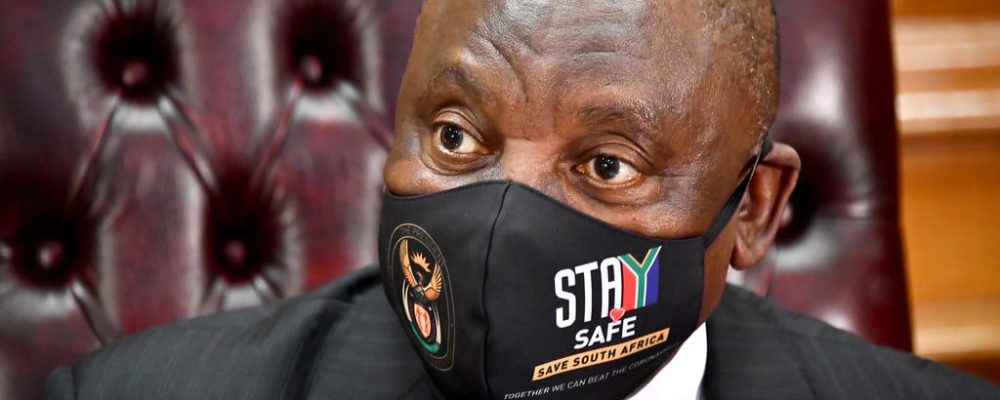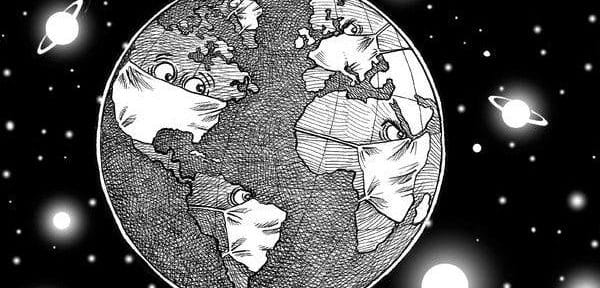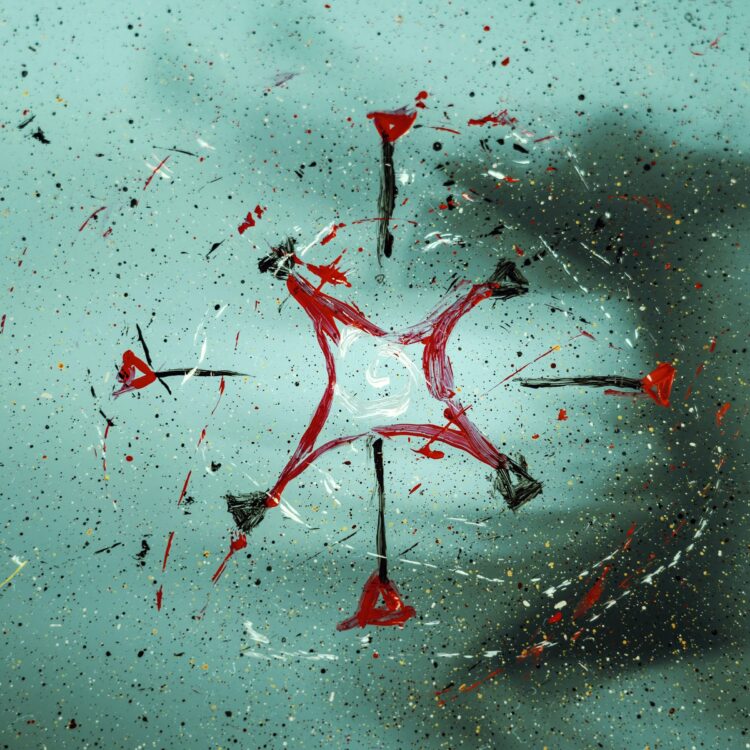
The South African government has made a mess of the lockdown. After it was praised in April for its speed and efficiency, by June, it was facing protest. The problems with the lockdown were not the lockdown itself, but rather the way it was mismanaged. The government failed to prevent massive corruption, kleptocracy, and delays in the distribution of COVID-19 relief funds, it was unable to avoid police brutality, and many of its measures were irrational and bizarre. By July, however, big business broke with government and revolted, demanding that the government end the lockdown with immediate effect. It launched a “Business for Ending Lockdown (B4EL)” campaign. It claims to have received the endorsement of almost 54,000 businesses and 3,500 individuals. Russel Lamberti, one of the all-male panel of advisors to the B4EL, claims that “few people in the world have been locked down longer and harder by their government than the people of South Africa.” He also claimed that it is “the lockdown and its numerous restrictions which directly created this economic depression.”
But both of these statements are misguided, and generally, the business sector’s attempt to get the lockdown completely lifted, while the country is amongst the ten most affected countries in the world, is regrettable. It a recently published paper, we argue that South Africa’s big business is, if it is indeed committed to the B4EL cause, is mistaken. Our response to the claims by the B4EL campaign is as follows.
First, the lockdown has not been longer and harder in South Africa than in most countries. Amongst the ten most affected countries in the world, South Africa’s lockdown is, while strict, not the most severe, neither in terms of the stringency of the lockdown as measured by Oxford University’s Stringency Index, nor by the decline in the mobility of its population as measured by Google Mobility Trends. South Africa even prematurely eased its lockdown in June 2020, with the number of cases growing exponentially, the reproduction number (R0) at 2,95 still far above one, and the percentage of excess deaths rising to 65%.
Second, the lockdown itself is not to blame for all the economic woes that have befallen the economy. Even without a lockdown, an economic contraction would be unprecedented. More importantly, even lifting the lockdown is no guarantee that the economy will recover. Instead, it holds some real risks that may make matters worse over the longer-term. The economies of virtually all of South Africa’s trading partners have shrunk dramatically. The World Bank expects the Euro Area GDP to contract by -9,1% in 2020. Moreover, the pandemic hit South Africa after its economy had still not recovered from the 2009 global financial crisis, and was reeling from the R1,5 trillion loss of the State Capture Scandal – three times as much as the government’s COVID-19 fiscal support package.
Will ending the lockdown, however, reduce the extent of the unavoidable recession? This is an uncertain prospect and should be balanced against the greater certainty that a premature ending of any non-pharmaceutical interventions (“lockdown”) will have longer-term costs. This may exceed those of an effective lockdown. What increases the uncertainty of the value of totally ending the lockdown is that the experience worldwide so far shows that the strictness of lockdowns does not correlate well with their degree of economic hardship. Many countries with lighter lockdown measures than South Africa are expected to end up with much sharper declines in GDP growth in 2020, such as Greece (-9.0%), Spain (-10,9%), Portugal (-9,8%), and Slovakia (-9,0%) – amongst others. A study comparing Sweden and Denmark found that aggregate consumption declined by about the same amount (25 to 27%) in both countries, although the lockdown severity differed markedly between the countries. An IMF study found that people will tend to voluntarily self-isolate before governments institute mandatory lockdown measures. This IMF study concludes that avoiding or ending a lockdown “may not fully shield an economy from the COVID-19 shock and that the depression of economic activity may persist even after mandatory lockdown measures are lifted if people continue to voluntarily limit their mobility” – as they indeed found was the case in the USA and EU. Similarly, in the case of South Korea, it was found that “COVID-19 doesn’t need lockdowns to destroy jobs.”
The implication is that even if lockdown measures are lifted, people will avoid risk if they know the virus is out there, and they will reduce consumption to raise precautionary savings. Knowing that this is how their consumers think and behave, businesses would freeze their investment plans, new business creation would stagnate, and the economy would fall into a low-growth trap. This was what prolonged the Great Depression in the 1930s. In South Africa’s case, further consideration is that a smart lockdown, supported by a fiscal safety net, offers protection in particular to low- income households, who are more exposed in their jobs to being infected, and who have less possibility than high-income households to work from home or work in conditions that observe social distancing rules.
Thus, any claims by big business that South Africans have burdened under the longest and hardest lockdown in the world, and that it is the lockdown that is the main destroyer of the economy, do not rest on solid foundations. In fact, for a campaign instigated and led by the business sector, it shows remarkably little business foresight. Unless South Africa gets the COVID-19 pandemic under control, it will suffer long-term structural economic challenges that would depress growth and delay economic recovery. This is because COVID-19 is a highly contagious, deadly, global pandemic, whose effects and uncertainty will persist into the near future. The world is hardly likely to stand by silently and allow South Africa to be a hotspot for uncontrolled incubation and spread of the virus, while almost a million have died from it. The country is amongst the ten most affected countries in the world. In contrast, the net benefits of altogether ending the lockdown are subject to significant uncertainty.
The importance here is that it is a well-managed lockdown: the fact that the government mismanaged the lockdown so far is no argument to scrap it. When the South African government imposed the lockdown in March 2020, it did so without any exit strategy. A “smart” lockdown, in contrast, is a lockdown with a “Goldilocks” exit: from which a country or region can exit not too soon, but neither too late. There is one aspect in such a Goldilocks strategy that will matter a lot, namely the extent to which aggregate demand can be boosted.
The COVID-19 shock, which started as a supply-shock, rapidly evolved into a demand-side shock (a Keynesian supply-side shock) exceeding the impact of the supply-side shock. The significance of the demand-side shock is, in the case of South Africa, particularly evident from the continuous decline in the country’s imports (by -33,4% by June 2020) – reflecting the drop in domestic demand. With government and households being fiscally constrained, this leaves export growth as one of the few potential channels to stimulate recovery – by raising aggregate demand and bring in foreign savings through the current account. Fortunately for South Africa, by May 2020, its export values were back to 2019 value levels and even up compared to the preceding four years for June. Moreover, the industries in South Africa where workers are least at risk from the transmission and who can thus continue within a smart lockdown to work, includes, as a study by UCT has found, “the entire primary sector – Agriculture, Manufacturing, and Mining.” These are also the main sectors of exports from the country.
In conclusion, the country has lost a battle against COVID-19. It can win the eventual war if it gets a demand-focused, export-savvy Goldilocks lockdown right, but not if it gets caught between the greed of kleptocrats on the one hand, and lockdown skeptics on the other.

